Our Team
The Coalition for Community Writing is made up of a diverse group of committed educators and changemakers working towards a common goal of creating real local and global impact through the power of language connected to community efforts for change.
CCW Team

Veronica House
Founding CEO & Executive Director
Director, Conference on Community Writing
University of Denver
Veronica House
Veronica is the author of Medea’s Chorus: Myth and Women’s Poetry Since 1950 (2014) and several articles on local food movements and community engaged work in higher education. She is recipient of Campus Compact's Engaged Scholar Award; University of Colorado's Women Who Make A Difference Award; and numerous teaching awards, including CU writing program's Award for Excellence and Innovation in Teaching. Her recent teaching, community work, and scholarship focus on food localization, critical food literacy, and institutionalization of community-engaged pedagogy. Veronica is also co-editor of the Community Literacy Journal.
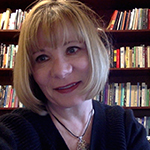


Paula Mathieu
Co-Chair, Coalition for Community Writing
Boston College
Paula Mathieu
Paula Mathieu works as Associate Professor of English at Boston College where she directs the First-Year Writing Program. She teaches graduate and undergraduate courses in rhetoric, writing as social action, and writing pedagogy. She wrote Tactics of Hope: The Public Turn in English Composition, and co-edited three essay collections, including Circulating Communities, with Stephen Parks and Tiffany Roscoulp. With Diana George, she has cowritten several articles about the rhetorical power of the dissident press. She also has published on the intersections between writing and contemplative practice for the Journal of Advanced Composition (JAC) and the Journal for Expanded Perspectives on Learning (JAEPL).
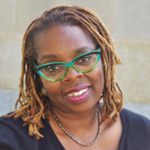


Stephanie Briggs
Co-Chair, Coalition for Community Writing
Be.Still.Move.
Stephanie Briggs
Stephanie Briggs utilizes arts-based practices to foster community, social action, and compassion among students. She facilitates the Contemplative Community Circle for faculty/staff and received a Center for Contemplative Mind in Society Building Communities Grant: “Practical Empowerment: Building Contemplative Communities With Students of Color." She is also the owner of Be.Still.Move., a facilitated training program of mindful /contemplative practices for educational institutions, non-profit organizations, and corporations.



Sweta Baniya
Secretary, Coalition for Community Writing
Virginia Tech
Sweta Baniya
Sweta Baniya is an Assistant Professor of Rhetoric, Professional and Technical Writing at the Department of English at Virginia Tech. Her research centers around transnational disaster response, non-western and feminist rhetorics, as well as community-engagement. She studies the emergence of transnational assemblages and networked communities during local and global disasters. Her scholarship is informed via non-western rhetorical traditions and practices that she acquired via her community in Nepal. Currently, her upper level undergraduate class at Virginia Tech is virtually engaged with an international community partner named Code for Nepal whose main focus is to increase digital literacy in rural communities in Nepal. Her students are serving teachers and students in rural communities of Nepal by producing user-based documents that will assist them in increasing digital literacy especially in a post-pandemic context. Her work has appeared in Enculturation, Journal of Business and Technical Communication, Journal of Technology Studies. She is also one of the founding members of #NextGen, the first international graduate student listserv.
Professional website: www.sbaniya.com; Twitter: @Sunkesharee
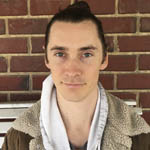

Josh Luckenbach
Web Editor and Designer
Texas Tech University
Josh Luckenbach
Josh Luckenbach is a poet whose recent work has appeared or is forthcoming in The Southern Review, Shenandoah, Birmingham Poetry Review, Nimrod, Nashville Review, Grist, and elsewhere. He received his BA in English from the University of Virginia and his MFA in Creative Writing from the University of Arkansas. He currently lives in West Texas where he is pursing his PhD and serves as Managing Editor for Iron Horse Literary Review.
Visit Josh's website to read his work, or, for web design services, visit Web Design by Josh.


Keshia Mcclantoc
Social Media and Marketing Manager
University of Nebraska-Lincoln
Keshia Mcclantoc
Keshia Mcclantoc is currently a PhD student and graduate teaching assistant at the University of Nebraska-Lincoln. Her research and teaching revolve around working with digital communities and rural communities. She is interested in the ways that these two spaces (rural/digital) meet and overlap, especially for queer peoples, women, and other marginalized populations to who live in rural areas. At UNL, she currently serves as the director of Writing Lincoln Initiative, a program that works in partnership with a variety of organizations to bring literacy practices to Lincoln. Additionally, she currently serves as Associate Director of Composition as well as Vice-President and Social Media Manager of Watershed, UNL’s graduate student blog.
Board Of Directors



Veronica House
Founding CEO & Executive Director
Director, Conference on Community Writing
University of Denver
Veronica House
Veronica is the author of Medea’s Chorus: Myth and Women’s Poetry Since 1950 (2014) and several articles on local food movements and community engaged work in higher education. She is recipient of Campus Compact's Engaged Scholar Award; University of Colorado's Women Who Make A Difference Award; and numerous teaching awards, including CU writing program's Award for Excellence and Innovation in Teaching. Her recent teaching, community work, and scholarship focus on food localization, critical food literacy, and institutionalization of community-engaged pedagogy. Veronica is also co-editor of the Community Literacy Journal.



Sweta Baniya
Secretary, Coalition for Community Writing
Virginia Tech
Sweta Baniya
Sweta Baniya is an Assistant Professor of Rhetoric, Professional and Technical Writing at the Department of English at Virginia Tech. Her research centers around transnational disaster response, non-western and feminist rhetorics, as well as community-engagement. She studies the emergence of transnational assemblages and networked communities during local and global disasters. Her scholarship is informed via non-western rhetorical traditions and practices that she acquired via her community in Nepal. Currently, her upper level undergraduate class at Virginia Tech is virtually engaged with an international community partner named Code for Nepal whose main focus is to increase digital literacy in rural communities in Nepal. Her students are serving teachers and students in rural communities of Nepal by producing user-based documents that will assist them in increasing digital literacy especially in a post-pandemic context. Her work has appeared in Enculturation, Journal of Business and Technical Communication, Journal of Technology Studies. She is also one of the founding members of #NextGen, the first international graduate student listserv.
Professional website: www.sbaniya.com; Twitter: @Sunkesharee



Stephanie Briggs
Co-Chair, Coalition for Community Writing
Be.Still.Move.
Stephanie Briggs
Stephanie Briggs utilizes arts-based practices to foster community, social action, and compassion among students. She facilitates the Contemplative Community Circle for faculty/staff and received a Center for Contemplative Mind in Society Building Communities Grant: “Practical Empowerment: Building Contemplative Communities With Students of Color." She is also the owner of Be.Still.Move., a facilitated training program of mindful /contemplative practices for educational institutions, non-profit organizations, and corporations.
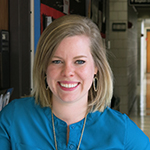

Megan Faver Hartline
University of Tennessee at Chattanooga
Megan Faver Hartline
Megan Faver Hartline is Assistant Professor of English at the University of Tennessee at Chattanooga. Her scholarship examines how people learn to enact local community change, analyzing the informational, material, and institutional barriers they face and the structures that enable them to connect their interests in social justice with local action. Megan has co-edited two collections, Writing for Engagement: Responsive Practice for Social Action(2018, Lexington Press) and Mobility Work in Composition (2020, Utah State UP), and she has published articles in Reflections, Community Literacy Journal, Computers and Composition Online, and JAC.


Ada Hubrig
Sam Houston State University
Ada Hubrig
Ada Hubrig (they/them; Twitter @AdamHubrig) is a multiply-disabled caretaker of cats. They live in Huntsville, Texas, where they work as an assistant professor and English Education coordinator for the English Department at Sam Houston State University. Their research and teaching explore disability, especially at the intersection of pedagogy, queer rhetorics, community literacy, and teacher education and is featured in in College, Composition, and Communication, The Community Literacy Journal, The Journal of Multimodal Rhetoric and Reflections: A Journal of Community Engaged Writing and Rhetoric and their words have also found homes in Brevity, and Disability Visibility Blog. Ada is currently co-editor of the AntiAbleist Composition blog space and an advisory board member of the Coalition on Community Writing.
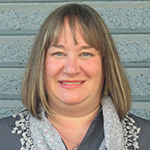

Tobi Jacobi
Colorado State University
Tobi Jacobi
Tobi Jacobi is Professor of English and director of the Community Literacy Center at Colorado State University. She has coordinated the SpeakOut! Writing Workshop program since its inception in 2005, a program that served over 500 community writers in 2017. Her co-edited book Women, Writing, and Prison came out in 2014, and she is currently working on a prison literacy remix project that blends contemporary pedagogy with archival prison texts with Dr. Laura Rogers. Her essay, co-authored with student Michelle Curry, "Just Sitting in a Cell, You and Me: Sponsoring Writing in a County Jail" appears in the Fall 2017 issue of the Community Literacy Journal.
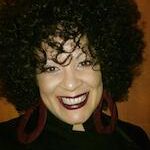

Carmen Kynard
Texas Christian University
Carmen Kynard



Paula Mathieu
Co-Chair, Coalition for Community Writing
Boston College
Paula Mathieu
Paula Mathieu works as Associate Professor of English at Boston College where she directs the First-Year Writing Program. She teaches graduate and undergraduate courses in rhetoric, writing as social action, and writing pedagogy. She wrote Tactics of Hope: The Public Turn in English Composition, and co-edited three essay collections, including Circulating Communities, with Stephen Parks and Tiffany Roscoulp. With Diana George, she has cowritten several articles about the rhetorical power of the dissident press. She also has published on the intersections between writing and contemplative practice for the Journal of Advanced Composition (JAC) and the Journal for Expanded Perspectives on Learning (JAEPL).
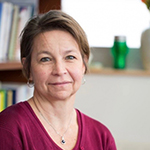

Phyllis Ryder
George Washington University
Phyllis Ryder
Phyllis Ryder is an Associate Professor of Writing at the George Washington University, and an Affiliate Faculty with the Honey W. Nashman Center for Civic Engagement and Public Service.
Through both scholarship and teaching, Phyllis Ryder investigates what it means to write for social change. Her current projects analyze the rhetorics of whiteness in public and academic spaces. Her 2011 book, Rhetorics for Community Action, offers a theory for conceptualizing public writing in democracy as well as practical guidance for developing first-year writing classes with a service-learning focus. Ryder also investigates how to teach information literacy, including serendipity. Her work has been published in Rhetoric Review, JAC, Reflections, Community Literacy Journal, among others.
She serves as Director of George Washington University's Writing Center.


Karen Tellez-Trujillo
Cal Poly Pomona
Karen Tellez-Trujillo
Karen is an Assistant Professor at Cal Poly Pomona in the Department of English and Modern Languages. Her educational background and research interests are in border, feminist, and cultural rhetorics. Karen is enjoying becoming part of her new Southern California community after spending her life as a resident of New Mexico.


Ada Vilageliu-Díaz
University of the District of Columbia
Ada Vilageliu-Diaz
Ada Vilageliu-Díaz received her Ph.D. in English from Howard University and her B.A. in English Philology from Universidad de La Laguna in the Canary Islands. She has taught composition courses as full time lecturer at Howard University and Bowie State University. She currently teaches writing and literature courses at the University of the District of Columbia. Her research focuses on rhetoric and composition, community-based teaching, community-based scholarship, Latinx and Caribbean literature and writing. Her poetry has been published in Beltway Poetry Quarterly, American University’s Festival Latino-Americano de Poesía, and Knocking on the Door of the White House: Latina and Latino Poets in Washington, D.C. Her creative writing is based on legends and myths about the indigenous Guanches from the Canary Islands and focused on reconstructing a fragmented African Latina identity. She is also a documentary filmmaker. Her directorial debut was in 2014 with the documentary Near the River about environmental women leaders in the DC area. This film was in the official selection of film festivals in Colombia, Brazil, India, Spain, and the US. She is the host and creator of two community-based projects in Washington, DC: Mi Libro, Mi Espejo (My Book, My Mirror) Virtual Story Time and the Creative Community Writing Salon. Her website is adavilageliudiaz.com.
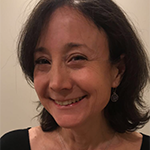

Stephanie Wade
Stony Brook University
Stephanie Wade
From my time as an undergraduate at Wesleyan University through my graduate studies at City College and Stony Brook University, I have been interested in narrative and scientific forms of communication, which has lead me to ecological approaches to literacy: both/and approaches that are inherently interdisciplinary and that involve diverse communities. I honor this in my work by using the concept of ecological community literacies to develop projects that encourage participants to understand our human, plant, animal, and other neighbors, to understand knowledge as contextual, dynamic, and provisional; and to understand identity as constituted via relationships. In practice this means I use principles from permaculture for community writing that helps us listen closely to the many voices around us: voices that come from many disciplines and communities; that come in many languages and dialects; that come in words and images, sounds and gestures, stories and numbers; that carry traces of history; and that, hopefully, show us ways to more inclusive and just futures.
My teaching has allowed me to participate in diverse communities, including City College and the Center for Worker Education, both urban schools in Manhattan; Stony Brook University and Rowan University, in suburban settings; and Unity College, in rural Maine. I have collaborated with faculty from many disciplines via my work as founding director of the Writing Center of Stony Brook Southampton, where I helped create the Environmental Humanities major, and director of writing at Unity College, where I also served as the director of general education.
Currently, I work as the assistant director of writing for natural sciences and interdisciplinary studies at Bates College, where I collaborate with faculty and students on writing across the curriculum and writing in the community. I focus on partnerships with K-12 schools that include place-based writing, writing in school gardens, and public art, projects informed by my past service on the board of directors for Rena’s Promise International Creative Writing Camp and the RSU 20 school district. I have collaborated on public programs with the Maine Humanities Council; the Natural Resource Council of Maine; and the Belfast Poetry Festival. My work has been published in the Community Literacy Journal, PRIMUS, The Bangor Daily News, and The East Hampton Star, and I serve on the editorial board of the Community Literacy Journal.


Amy Wan
Queens College
Amy Wan
Amy J. Wan (she/her/hers) is an associate professor of English at Queens College and the Graduate Center, City University of New York, where she teaches first year writing, advanced composition, and undergraduate and graduate classes on literacy, research methods, and pedagogy. She is the author of Producing Good Citizens: Literacy Training in Anxious Times (U of Pittsburgh P, 2014), an examination of citizenship, literacy, and the productive worker-citizen in the United States. Her writing has also appeared in College English, Journal of College Literacy and Learning, Literacy in Composition Studies, Rhetoric Review, and Radical Teacher. Her article “In the Name of Citizenship,” published in College English (74.1), was the recipient of the Richard Ohmann Outstanding Article Award in 2012. Her current project analyzes how to create spaces for change, resistance, and linguistic justice within the global US university through a historical and contemporary study of policies addressing access, diversity, race, and writing.
Advisory Board


Isabel Baca
University of Texas at El Paso
Isabel Baca
Isabel Baca, Ph.D., is Associate Professor of Rhetoric and Writing Studies, a UTEP Distinguished Teaching Professor, and founder and director of the Community Writing Partners Program in the Department of English at the University of Texas at El Paso (UTEP). She is a practitioner and advocate of service-learning and community engaged scholarship. In supervising community literacy internships and writing practica for students, she works with faculty across the disciplines and with community agencies in El Paso, TX, Las Cruces, NM, and Juárez, México. In 2018, she was awarded a National Endowment for the Humanities grant for the launching of the Bilingual Professional Writing Certificate program in which students enhance their workplace writing skills in English and Spanish as bilingual, professional, and ethical writers by working with nonprofit organizations, such as the El Paso Hispanic Chamber of Commerce, the El Paso International Music Foundation, the Reynolds’ Home, and Centro Mujeres de la Esperanza. Her publications include Service-Learning and Writing: Paving the Way for Literacy(ies) through Community Engagement (2012) and a co-edited collection, Bordered Writers: Latinx Identities and Literacy Practices at Hispanic-Serving Institutions (2019). She has published in and guest edited special issues of Reflections: Community-Engaged Writing and Rhetoric. Currently, she is working on an edited collection with Jasmine Villa and Yndalecio Isaac Hinojosa titled Communities in Action: Creating Spaces of Social Change.


Cori Brewster
Eastern Oregon University
Cori Brewster
Cori Brewster is professor of rhetoric, literacy, and writing studies at Eastern Oregon University. Her current research focuses on rural and agricultural rhetorics and issues of equity, access, and privatization in public higher education. Her work has appeared in multiple collections centered on community-engaged teaching and programming including Reclaiming the Rural: Essays on Literacy, Rhetoric, and Pedagogy (Donehower, Hogg, and Schell 2012) and Food Justice Activism and Pedagogies: Literacies and Rhetorics for Transforming Food Systems in Local and Transnational Contexts (Schell, Winslow, and Shrestha, forthcoming).
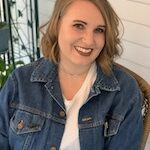

Erin Brock Carlson
West Virignia University
Erin Brock Carlson
Erin Brock Carlson is an Assistant Professor of English at West Virginia University, where she teaches in the Professional Writing and Editing program. Her research focuses on community organizing in rural Appalachia, using participatory, community-based research methods to investigate the relationship between economic transition, environmental risk, and community action. Her work has appeared in Technical Communication Quarterly, Journal of Business and Technical Communication, Computers and Composition, and Reflections, among other journals and edited collections.
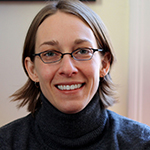

Lisa Dush
DePaul University
Lisa Dush
Lisa Dush is an Associate Professor in DePaul University’s Department of Writing, Rhetoric, and Discourse (WRD), where she serves as Director of the MA in WRD. She teaches undergraduate and graduate courses in professional and digital writing. Much of Lisa’s teaching and research is built around efforts to partner students with Chicago-area nonprofit organizations, to together develop and deploy new media writing projects. Lisa publishes research about digital storytelling, service learning, and how digital technologies have changed writing; her 2015 article, “When Writing Becomes Content,” won the CCCC’s Richard Braddock Award.


Paul Feigenbaum
Florida International University
Paul Feigenbaum
Paul Feigenbaum is an Associate Professor in the Department of English at Florida International University and co-editor of the Community Literacy Journal. His research, teaching, and engagement interests include community literacy, public rhetoric, the science of learning and motivation, critical entrepreneurship, and the intersections between rhetoric and psychology. Prior to completing his PhD at the University of Michigan, he taught English in Uzbekistan through the Peace Corps, and he has participated in community-writing projects in various schools and communities in Detroit, Miami, and a village near Leon, Nicaragua. His scholarship has appeared in journals including College English, the Community Literacy Journal, Reflections, and Composition Forum. His first book, Collaborative Imagination: Earning Activism through Literacy Education, was published by Southern Illinois University Press in 2015.
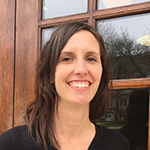

Becca Hayes
University of Missouri-Columbia
Becca Hayes
Becca Hayes is the Director of Composition at University of Missouri-Columbia. Her scholarly interests meet at the intersections of cultural and queer rhetorics and community-engaged research and pedagogy. Generally, her research focuses on how communities and cultural organizations engage and sustain publics through rhetorical practices that support civic action and social justice. She has facilitated civic engagement trainings and anti-racism workshops with organizations such as AmeriCorps, YWCA, and NEW (National Education for Women’s) Leadership. She’s held fellowships with Humanities Without Walls, The Cultural Heritage Informatics Initiative, and the Eli and Edythe Broad Art Museum. Her work has appeared in Reflections: A Journal of Public Rhetoric, Civic Writing, and Service Learning with more scholarship forthcoming in edited collections and journals.


Lisa King
University of Tennessee Knoxville
Lisa King
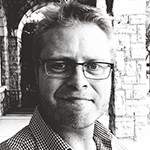

Seán McCarthy
James Madison University
Seán McCarthy
Seán is an assistant professor in the School of Writing, Rhetoric and Technical Communication at James Madison University, and his teaching and research are situated at the intersection of community engagement and digital literacy studies. He is particularly passionate about better understanding how writing, digital media, and interdisciplinary collaboration serve to build creative university-community partnerships.
Seán currently serves as a university Entrepreneurship Faculty Fellow at JMU, and he also co-teaches an annual institute for faculty in digital humanities pedagogy. In 2017, he and collaborator Mollie Godfrey won the award for Best Community-University Project at the Conference on Community Writing for their work on “Celebrating Simms: The Story of the Lucy F. Simms School.”
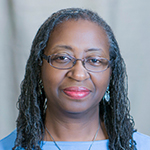

Beverly Moss
The Ohio State University
Beverly Moss
Beverly J. Moss is an associate professor of English at The Ohio State University where she specializes in composition and literacy studies. Professor Moss earned her B.A. in English from Spelman College, her M.A. in English with a specialization in rhetoric and composition from Carnegie-Mellon, and her Ph.D. in English with a specialization in rhetoric, composition, and literacy from the University of Illinois at Chicago. Her scholarly interests include examining literacy in African American community spaces, composition theory and pedagogy, and writing center theory and practice. She is the author of A Community Text Arises: A Literate Text and A Literacy Tradition in African American Churches, co-author of Everyone’s an Author (composition textbook published by W.W. Norton), editor of Literacy Across Communities, and co-editor of Writing Groups Inside and Outside the Classroom and The Best of the Independent Journals in Rhetoric and Composition 2012. Professor Moss has served on the editorial boards of College Composition and Communication and the Studies in Writing and Rhetoric series and currently is on the editorial board of the Community Literacy Journal. She is currently writing a book on the literacy practices of Phenomenal Women Incorporated, an African American women’s service and social club.
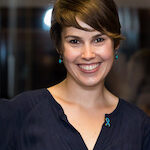

Maria Novotny
University of Wisconsin-Milwaukee
Maria Novotny


Jessica Pauszek
Boston College
Jessica Pauszek
Jessica Pauszek is an Assistant Professor of English at Boston College. She is the Managing Director of New City Community Press and co-editor, with Steve Parks, of the Working and Writing for Change series through Parlor Press. Her book project Writing From The Wrong Class details a transnational community archival project with members from the Federation of Worker Writers and Community Publishers and argues for increased attention to precarity and materiality in community partnership work. The basis of this work stems from her dissertation which was awarded honorable mention for the 2018 James Berlin Outstanding Dissertation Award. Her work has been published in Across the Disciplines, CCC, Community Literacy Journal, Reflections, and more.


Vincent Portillo
Boston College
Jessica Pauszek
Vincent Portillo is a University Fellow and PhD candidate in the Composition and Cultural Rhetoric Program at Syracuse University. His research in working-class archives focuses on histories of industrial education and processes of Americanization through the English language. He serves as Consulting Editor and Project and Program Profiles Editor for Community Literacy Journal.
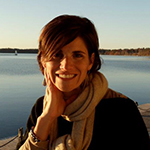

Jessica Restaino
Montclair State University
Jessica Restaino
Jessica Restaino is Associate Professor of Writing Studies, Director of First-Year Writing, and Director of Gender, Sexuality, and Women's Studies at Montclair State University. She is the author of First Semester: Graduate Students, Teaching Writing, and the Challenge of Middle Ground (SWR 2012) and co-editor (with Laurie Cella) of Unsustainable: Re-imagining Community Literacy, Public Writing, Service-Learning, and the University (Lexington 2012). Her most recent book, Surrender: Feminist Rhetoric and Ethics in Love and Illness, is forthcoming from Southern Illinois University Press in 2019. Her essays appear in journals such as Peitho, Community Literacy Journal, Composition Forum, and others.


Elaine Richardson
The Ohio State University
Elaine Richardson
Elaine Richardson (aka Dr. E) was born in Cleveland, Ohio. An inspirational Ohio State University professor of education and author, in the tradition of Dr. Maya Angelou, Dr. E is a multi-dimensional personality—a performer, recording artist, and speaker—with an inspirational message of spiritual and educational empowerment.
She is Professor of Literacy Studies
at The Ohio State University, Columbus, where she teaches in the Department of Teaching and Learning. Her research interests include the liberation and critical literacy education of people
of the Black African Diaspora. Her books include African American Literacies (Routledge, 2003), focusing on teaching writing from the point of view of African American Language and Literacy traditions, Hiphop Literacies (Routledge, 2006), a study of Hiphop language use as an extension of Black folk traditions, and PHD (Po H# on Dope) to Ph.D.: How Education Saved My Life, (New City Community Press, 2013), an urban educational memoir that chronicles her life from drugs and the street life to the university. Richardson has also co-edited two volumes on African American rhetorical theory, Understanding African American Rhetoric: Classical Origins to Contemporary Innovations Routledge, 2003) and African American Rhetoric(s): Interdisciplinary Perspectives (Southern Illinois University Press, 2004), and one volume on Hiphop Feminism—Home Girls Make Some Noise (Parker Publishing, 2007). Among her awards, she was Fulbright lecturing researcher in the department of Literatures in English at the University of the West Indies, Mona, Jamaica (2004); Community Cultural Icon Award from the Office of Diversity and Inclusion/Frank Hale, Jr. Black Cultural Center, The Ohio State University 2013; National Council of Negro Women Community Service Award (2012), an Outstanding Woman of Columbus Award (2011), and other honors. She is founder of The Ohio State University’s Hiphop Literacies Conference. Her passion is critical community literacy working with women and girls and color and Black mother-daughter networks.
Selected endorsement of PHD to Ph.D.: How Education Saved My Life:
If Zora Neale Hurston had a god-daughter, she could be Elaine Richardson: on so many paths, she comes to these pages a deep student of life—the one who studies it up close, unguarded, and, with a musician’s ear for the song that lives in all of her experience, brings home its truths in their fearsome and freeing power.
-- Ted Lardner, Professor of English, Cleveland State University


Lauren Rosenberg
The University of Texas at El Paso
Lauren Rosenberg
Lauren Rosenberg is an associate professor of Rhetoric and Writing Studies in the English department at the University of Texas at El Paso where she also directs the first-year composition program. She is the author of The Desire for Literacy: Writing in the Lives of Adult Learners, which is based on a study of a group of adults acquiring and negotiating literacy later in life. Lauren’s current literacy work extends her original case studies with adult basic learners to consider what happens to research relationships when they become longitudinal, led by the interests and needs of participants. She has volunteered as an adult literacy tutor with individuals and at a community learning center and has collaborated with a community partner in guiding college students to assist entrepreneurs in writing business plans. Currently, Lauren is learning about sites of informal writing in the El Paso area with the goal of forming a new partnership.
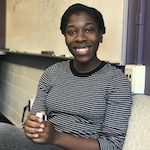

Sherita V. Roundtree
Towson University
Elaine Richardson
Sherita V. Roundtree is an Assistant Professor of English at Towson University. She studies ways to develop diverse representation and equitable access for students, teachers, and scholars who write in, instruct in, and theorize about writing classrooms. Her current work centralizes the teaching efficacy, pedagogical approaches, and "noise" of Black women graduate teaching assistants (GTAs) who teach or have taught first- and/or second-level composition courses. Considering Black women GTAs' feelings of preparedness and approaches to teaching composition, Roundtree explores the networks of support they utilize and how they do or do not use resources to navigate pedagogical challenges.


Donnie Johnson Sackey
University of Texas at Austin
Donnie Johnson Sackey


Rachael W. Shah
University of Nebraska-Lincoln
Rachael Wendler Shah
Rachael Wendler Shah is an assistant professor in the Composition and Rhetoric program at University of Nebraska-Lincoln, where her research and teaching explore community literacy, teacher education, participatory methodologies, and the ethics of university-community collaborations. In partnership with a team of local educators and community partners, she coordinates Husker Writers, a public writing collaborative of secondary and university teachers who link their curricula to promote college access pathways and community action. She also supports the National Writing Project's College Career Community Writers Program, an argument writing partnership with rural and under-resourced schools, and advises a grad-student run community literacy organization, the Writing Lincoln Initiative. She frequently co-writes with youth, students, and local teachers, and her work appears or is forthcoming in Community Literacy Journal, CCC, Reflections, TCQ, and the Michigan Journal of Community Service Learning. Her book project focuses on community perspectives of university-community partnerships.


Don Unger
University of Mississippi
Don Unger
I am the McCullouch-Greer Assistant Professor of Civic Writing in the Department of Writing & Rhetoric at the University of Mississippi. Also, I serve as affiliated faculty with the Gender Studies graduate certificate program and the Community Leadership undergraduate minor. My work focuses on community writing and publishing. In Mississippi, I have built ongoing partnerships with The Marks Project—a nonprofit organization that supports education, community well-being, and workforce development in the Delta, and Oxford to the Ballot Box—a multi-institutional, community-based project funded by the Mississippi Humanities Council that addresses voting rights in Mississippi. Currently, I am working with The Marks Project and an interdisciplinary team to secure funding for a community-based digital literacy program. This teams includes Computer Science and Sociology faculty members. My community publishing work includes serving as an editor of Spark: A 4C4Equality Journal. Spark focuses on activism in writing, rhetoric, and literacy studies. My academic work has been published in Computers and Composition, Constellations: A Cultural Rhetorics Publishing Space, and various edited collections. Additionally, I have pieces forthcoming in the Journal of Multimodal Rhetorics and the Community Literacy Journal. Finally, I serve as a steering committee member of United Campus Workers-Mississippi: the first higher-education union in the state.


Kate Vieira
University of Wisconsin, Madison.
Kate Vieira
Kate Vieira is professor and Susan J. Cellmer Distinguished Chair of Literacy in the department of Curriculum and Instruction at the University of Wisconsin, Madison. She teaches across programs in education, English, Chican@/Latin@ Studies, and second language acquisition. She is the author of two monographs--American by Paper (University of Minnesota Press, 2016, and honorable mention CCC Outstanding Book Award) and Writing for Love and Money (Oxford University Press, 2019, and winner of NCTE Advancement of Knowledge Award and Edward B. Fry Book Award). A former Fulbright scholar in Colombia, she is co-editor with Jhoana Patiño Lopez of a community authored project on writing and peace building, Escribiendo el Corazón Común. She currently serves on the Coda editorial team.
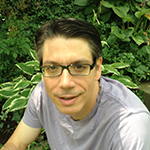

Christopher Wilkey
Northern Kentucky University
Christopher Wilkey
Christopher Wilkey is an Associate Professor in the Department of English at Northern Kentucky University, specializing in Rhetoric and Composition. Committed to linking his professional work to community activism and social justice, Dr. Wilkey co-designs community-based writing courses and activist research projects. His community engagement work is done in Cincinnati’s Over-the-Rhine neighborhood, where he partners with a number of Over-the-Rhine community organizations on projects related to literacy education and rhetoric. His community literacy scholarship includes articles in Reflections: A Journal of Public Rhetoric, Civic Writing, and Service Learning andLiteracy in Composition Studies. He is co-editor of a collection of essays, Texts of Consequence: Composing Social Activism for the Classroom and Community published by Hampton Press. He is co-founder of the Over-the-Rhine Community Writing Collaborative, a partnership between Peaslee Neighborhood Center in Over-the-Rhine and NKU’s Department of English.
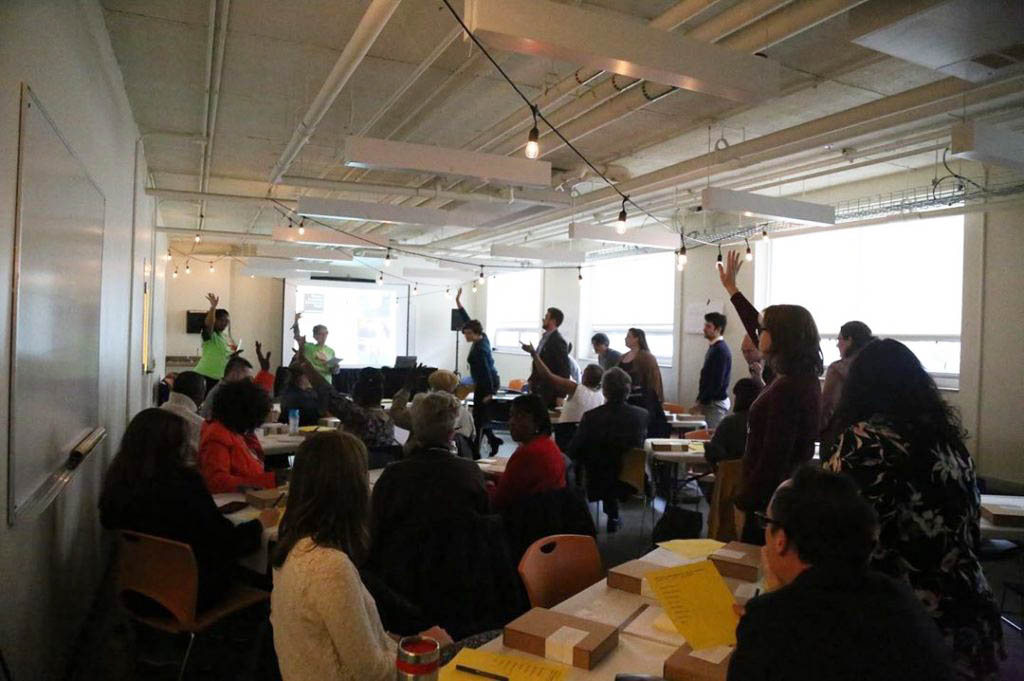

Sign up for our Community Writing listserv, a valuable resource and networking space for scholars, students, teachers, and community members.
Members of the list are welcome to post questions, ideas, and announcements about pedagogy, research, publications, projects, and events regarding community writing and related fields.

